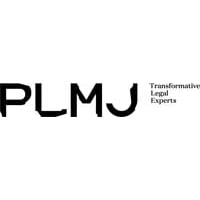

Head of legal, Portugal | Farfetch



João Fachana
Head of legal, Portugal | Farfetch
What are the most significant cases or transactions that your legal team has recently been involved in?
The legal team in Portugal is part of the global legal, ethics and compliance team of Farfetch, comprising circa 90 individuals, and which is led by our group general counsel. The legal team in Portugal was established in May 2017, when João Fachana joined, with the task of building out the legal function in Portugal and leading data protection work across the whole group. The legal team has evolved, being now a full-service team, which provides advice and support across all business activities of Farfetch in Portugal, as well as supporting the Farfetch Group internationally across multiple areas of expertise, such as software and tech agreements and data protection compliance.
The legal team in Portugal has been actively involved in the privacy advisory for several key projects of the group in the last year.
In parallel we have also been involved in the integration of newly acquired businesses in our corporate structure, most focused in privacy, but also on the corporate and employment side of the ones that have Portuguese branches or employees.
We are also responsible for the negotiation of several agreements that are the “backbone” of our internal structure: we have reviewed and negotiated contracts with key technology providers.
Portugal has more than 3000 Farfetch employees (“Farfetchers”) and as such we also have developed in-house the capabilities of providing end-to-end support to all employment related matters, taking innovative and pragmatic approaches towards new realities, like hybrid work, as well as managing employment risk and ensuring litigations are kept to a bare minimum.
Finally, we also provide legal support in all aspects regarding the construction of Fuse Valley, a real estate project developed by Farfetch and a real estate partner, which aims to create the Farfetch Campus in Matosinhos, Portugal, which will be the home to thousands of Farfetchers. The project is ongoing, and the first phase of construction is expected to be concluded by 2027. Our support has been mostly focused on the licensing proceedings of the project as well as the contract drafting and negotiation of all services involved in the project, including architecture, project management and construction.
Looking forward, what technological advancements do you feel will impact the role of in-house legal teams in the future the most? Which have you found most useful in your legal team?
AI will undoubtedly present a huge impact on the role of lawyers in general, including those in-house. But I believe most of the impacts will be positive, as development of AI can allow lawyers to save time on repetitive and admin tasks, allowing more time for critical thinking and focus on the key projects for our stakeholders, allowing the in-house lawyer to be that true business partner, offering strong legal support as well as critical thinking and strategic advice, which in turn makes in-house legal add more value. In Farfetch we are always exploring new tools to help us automate manual tasks: we have recently implemented One Trust; a software tool aimed at simplifying and automate our data mapping and privacy assessments. We are also looking to implement a contract management system to expedite contract reviews and provide self-service solutions to our stakeholders.
How do you suggest in-house lawyers build strong relationships with business partners?
An in-house lawyer needs to establish themselves as trusted partners and advisors within the business. This not only requires great technical skills but also an ability to get out of the comfort zone and take a commercial and business-driven approach to risk mitigation. The in-house lawyer is in an excellent position to understand the business and their risk appetite and should use that to their advantage, by making themselves available, be able to deconstruct the legal “jargon”; when applicable, being able to translate the message between the external counsel and the business; and be able to step outside the pure legal advisor role and evolve into someone that can be part of the strategic decision making of the company. In summary, not only earn a seat at the table but be sought out to come and sit at the table!